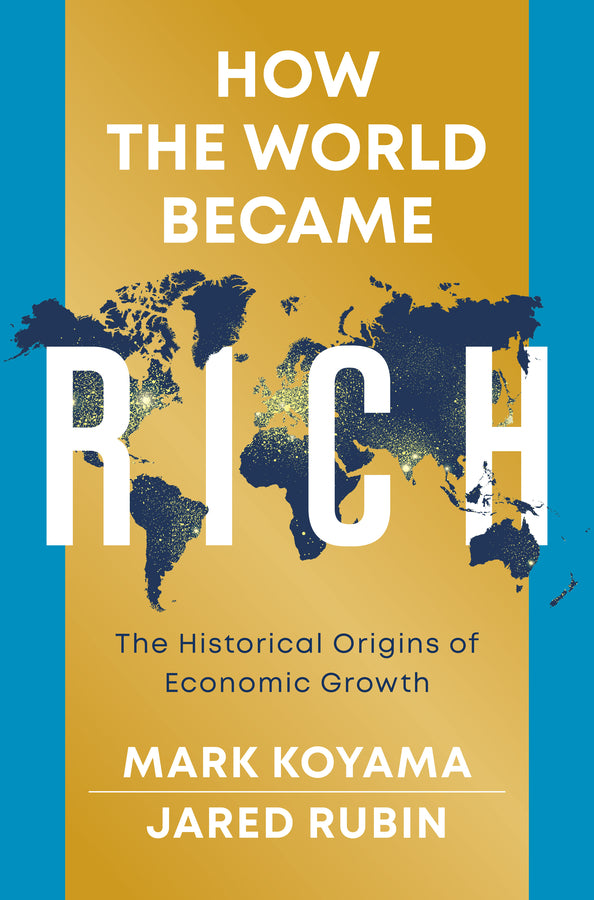Mark Koyama
How the World Became Rich
How the World Became Rich
Couldn't load pickup availability
Gabi's Review
How the World Became Rich explores five factors that explain the rise of modern prosperity. Four of these are examples with deep roots - geography, institutions, demography and culture - to which the authors add the impact of colonialism. The book is both extensively referenced and far more ambitious in scope than books like The Power Of Geography.
The authors argue that while geography bestows natural advantages such as resources and the ease of trade access, overall factors that make for economic success are mediated by political models, cultural framings and the agility of institutional governance. Their central claim dissects the role of representative institutions in limiting the ability of executives to arbitrarily interfere with entrepreneurs and innovators. Britain, for example, succeeded in achieving its modern growth outcomes because the nation possessed most of those advantages. While the authors are clear that growth is the key to increased economic prosperity, they are also keen to point out their exclusion of ethical considerations such as the cost to the planet by the exploitation of its resources. I presume this is our next challenge: how to create sustainable growth models that factor in our host environmental systems.
Economics has not been a major area of interest for me, but if there is a book that offers an engaging interlinked historical overview of this important issue, I can't imagine a more fascinating one than this. I feel better informed for having read it.
Publisher's Review
Most humans are significantly richer than their ancestors. Humanity gained nearly all of its wealth in the last two centuries. How did this come to pass? How did the world become rich?
Mark Koyama and Jared Rubin dive into the many theories of why modern economic growth happened when and where it did. They discuss recently advanced theories rooted in geography, politics, culture, demography, and colonialism. Pieces of each of these theories help explain key events on the path to modern riches. Why did the Industrial Revolution begin in 18th-century Britain? Why did some European countries, the US, and Japan catch up in the 19th century? Why did it take until the late 20th and 21st centuries for other countries? Why have some still not caught up?
Koyama and Rubin show that the past can provide a guide for how countries can escape poverty. There are certain prerequisites that all successful economies seem to have. But there is also no panacea. A society’s past and its institutions and culture play a key role in shaping how it may – or may not – develop.
Share


